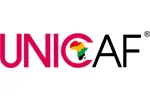

| The award | How you will study | Study duration | Course start | Domestic course fees | International course fees |
|---|---|---|---|---|---|
| MA | Online | - | - | - | - |
Educational aims of the programme
The programme will explore mass communications across a range of media forms including: entertainment media, broadcast and digital, public relations, advertising and journalism. The programme will address issues of policy, governance, professional practice, international communication flows, digitalisation, political economy, cultural practice and research methods. The programme aims to provide a progressive and challengingcurriculum that is informed by contemporary research and responsive to the changing nature of the Communication industries. The specific aims of the programme are to enable students to:Critique key theories and concepts that underpin the study of mass communications Undertake the evaluation of contemporary mass communications scholarship and professional practice Critically debate the political, legal and ethical aspects of media and communication processes, systems and participation Recognise and anticipate developments in the role played by media and communication in economic and political organisation at local, national, regional, international and global levels Carry out original and independent research through the development of a critical appreciation of research methodologies appropriate for the study of media and mass communications Meet the challenges of employment in a global society through the development of their intellectual, analyticaland research skills related to the study of mass communication.
Target award Learning Outcomes - Master of Arts
A student successfully completing the programme of study will have acquired the following subject knowledge
and understanding as well as skills and other attributes.
A student who is eligible for this award will be able to:
Employability
Further your career prospects
Are you fascinated by the media world? Do you want a career in journalism, TV, radio or internet broadcasting? Stand out from the crowd with a UK Master’s in Mass Communications from Liverpool John Moores University for the career and life of your dreams. Engagement with this vibrant and innovative programme of study will provide you with a portfolio of skills that will be valuable for working in a range of media industries. The postgraduate research training that is integral to this course will also enable you to pursue further study at doctoral level. Former students who have studied Mass Communications at LJMU have gone on to work in advertising, marketing, public relations, arts administration, publishing, industry, retail, leisure, charitable organisation.
Applications from non-standard applicants are welcome and will be considered individually.
* Entry requirements may vary depending on the programme of study.
Below are some suggested courses at other providers that you may also be interested in:
Graduate Diploma of Engineering (Electrical Systems) Graduate Diploma
Engineering Institute of Technology
Find out moreGraduate Diploma of Specialist Education Graduate Diploma
Charles Darwin University (CDU)
Find out moreGraduate Diploma in Clinical Nursing Graduate Diploma
Australian Catholic University (ACU)
Find out moreIf you do not meet the entry requirements for this course then consider one of these postgraduate preparation courses from another institution:
Graduate Diploma of Engineering (Electrical Systems)
Engineering Institute of Technology
Find out moreThere are 69 other courses listed from Unicaf Scholarships. A selection of these are displayed below:
Bachelor of Business Administration - Unicaf University Zambia BBA
Unicaf Scholarships
Find out moreJoin the StudyLink email list and never miss a chance to turn your study abroad dreams into reality!
